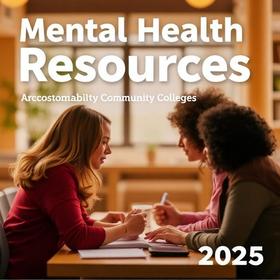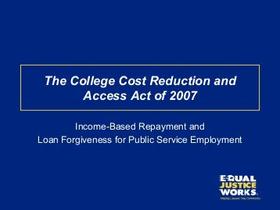Remedial education is a core component of community colleges today, as more students enter the world of higher education unprepared for the rigors of a college-level curriculum. However, remedial education has been linked to a low completion rate at some schools, where hours of class time in unrelated, remedial courses interfere with a student’s ability to earn a degree in a reasonable amount of time. With many factors weighing on a college’s ability to offer efficient remedial education, some schools are taking innovative approaches to the idea of preparing students for the rigors of higher education.
This video looks at the issue of remedial courses in community college.
The Prevalence of Remedial Education
An article at the Hartford Courant suggests that too many incoming freshmen are getting placed in remedial classes before they can take actual college coursework. The Courant reports that as many as 60 percent of all students entering community college must take at least one refresher course in math or English. What is even more unsettling is that only about one-quarter of these students go on to actually complete their degree program.
The publication also cites statistics from the Community College Research Center that show one-third of these students could pass a regular college course with a grade of a “B” or better, even without the remedial coursework under their belts. These numbers certainly seem to suggest that students are getting placed in remedial classes more often than is necessary. Statistics also point to the fact that lengthy and expensive remedial classes seem to thwart a student’s plan to finish a degree program in a timely fashion.
The Problem with Placement Tests
Why are so many students placed in remedial education when they enroll in community colleges today? The answer seems to lay with the standardized placement tests given to students before they register for college classes. These tests are quick to indicate students require refresher education before they can be successful in college-level courses. However, many educators are questioning the accuracy and efficiency of these tests.
The North County Times reports that although community colleges administer placement tests every year, few incoming students prepare for the examinations. In fact, many don’t even know the exams exist – until they are sitting in a classroom, pencil in hand. Without proper preparation, many of these students do not score well on the tests – particularly those who have been out of school for a number of years. In some cases, students may have to take a number of remedial classes before they are allowed to enroll in college-level courses.
“Students don’t know the stakes of the test, they’re not reviewing and they don’t prepare for it,” Katie Hern, an English instructor at Chabot College in Hayward, California, told the North County Times. “If you were to take that test cold – a professional journalist, a college graduate – you’d probably test two or three levels below college-level math.”
This video looks at the issue of math preparedness for college-level work.
In an effort to move more students through degree programs, without sacrificing college preparedness in the process, some states are taking a fresh approach to remedial education. From streamlined approaches to preparing students earlier, remedial education is beginning to look a lot different in some states across the country.
Gates Grant Opens Remedial Education Doors
In the Northwest, community colleges are getting a little help from the Bill and Melinda Gates Foundation. The foundation recently provided a $3 million grant to three Seattle community colleges to be used to revamp remedial education on those campuses. The Seattle Times reports that the schools plan to put the money to good use, offering short refresher courses to incoming community college students in an effort to streamline the remedial education process more effectively.
Thanks to the additional funding, Seattle Community Colleges are now compressing material taught in remedial math classes, as well as accelerating the pace of the classes so students can work through the material at a faster rate. The schools are also offering innovative class styles that are more effective in keeping student interest throughout the course. For example, math classes now attempt to provide practical application of concepts that students may have already encountered in the professional world.
Connecticut Considers Limits on Remedial Education
The Hartford Courant reports that state lawmakers in Connecticut are considering a bill that would prohibit community college in the state from requiring students to take more than a semester of remedial coursework. The state also wants to require schools to use more comprehensive means to assess whether students need remedial education in the first place. Lawmakers are responding to the growing body of evidence that suggests long-term remedial education doesn’t always help and can actually hurt a student’s odds of completing a degree program.
This video looks at the issue of college-preparedness.
Addressing the Issue at the High School Level
Colorado is also looking at the issue of remedial education but on a different level. The Denver Post reports that efforts are underway within the Colorado public school system to better prepare students for the rigors of a college curriculum, beginning all the way back in the primary years of school. The new measures are in response to concerning statistics that show the number of high school graduates in the state who are prepared for college coursework is on the decline. New proposals are designed to reduce the number of high school graduates needing remedial education prior to college classes.
Remedial education may be a necessary evil that community colleges must face, but schools do not have to follow the same path to failure. With a new way of looking at remedial education, schools may be able to effectively prepare students for the rigors of college and improve college completion rates at the same time
Questions? Contact us on Facebook. @communitycollegereview















